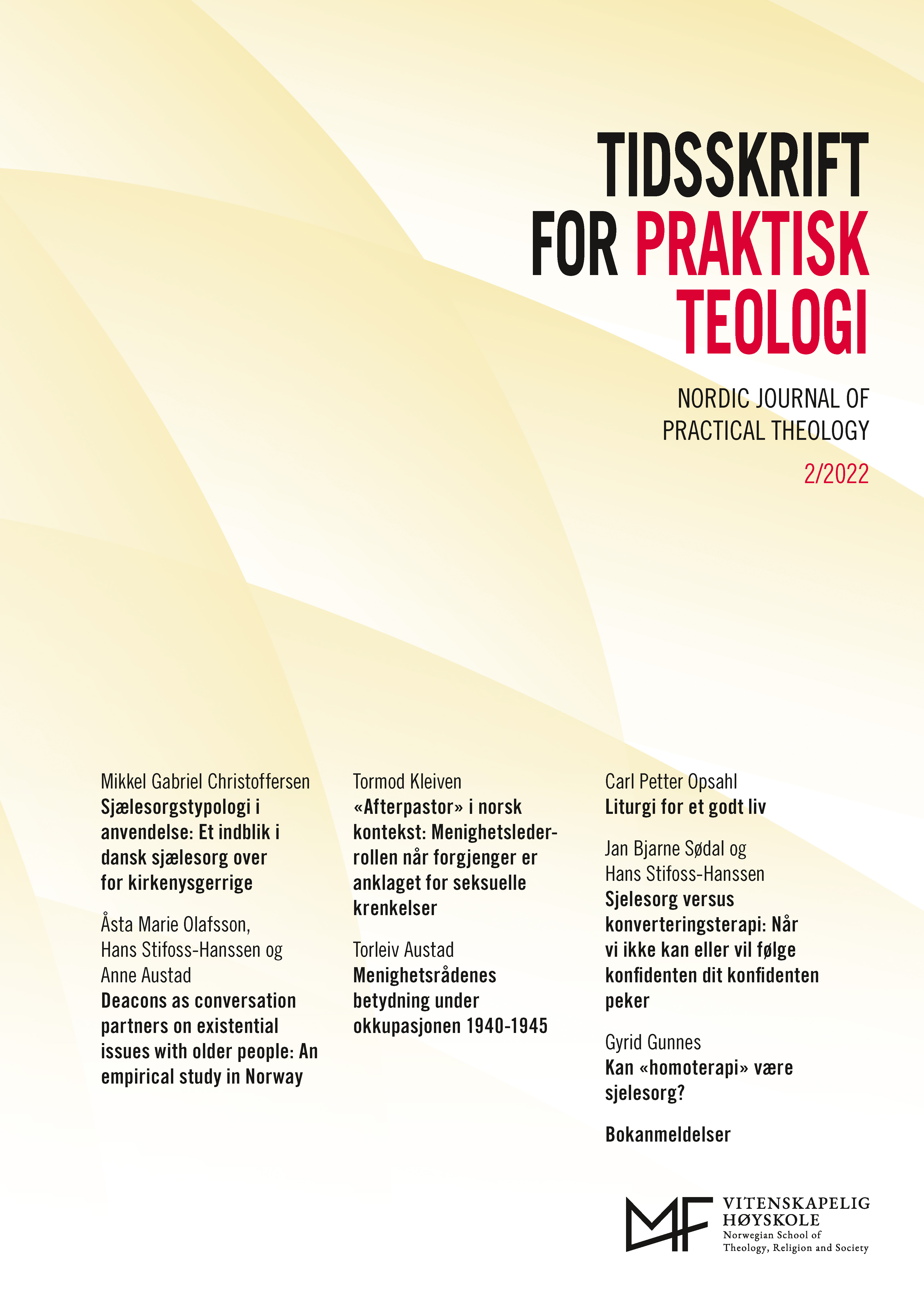Menighetsrådenes betydning under okkupasjonen 1940-1945
DOI:
https://doi.org/10.48626/tpt.v39i2.5501Sammendrag
The parish councils of the Church of Norway during the occupation 1940-1945 occupied a central position in the civil resistance against the efforts of the NS (the National Assembly) to recruit them in the campaign for the hearts and minds of the people. The councils continued to function even after the Quisling government’s decision to abolish them and replace them with three-member councils appointed by superiors who were affiliated with the NS. Quisling’s attempt to use this comprehensive national network as one of several instruments to create a NS church and nazify Norway not only failed but backfired. His strategy actually strengthened the resistance of the parish councils and their solidarity with the clergy of the autonomous church of the people. With the exception of those compatriots who either were members of and sympathized with the NS, the church people of Norway stood united in proclaiming “No!” to national socialist ideology and ecclesiastical policies.





